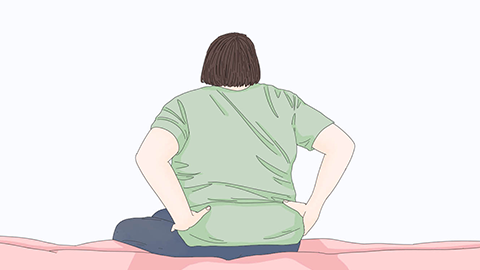Why Do Overweight People Experience Hypoglycemia?
Generally, hypoglycemia in obese individuals may be caused by irregular eating habits, excessive physical activity, adrenal cortical insufficiency, insulin resistance, insulinoma, and other factors. Symptomatic management through general treatment and medication may be needed. If discomfort occurs, it is recommended to seek medical attention promptly and undergo appropriate treatment under a physician's guidance. Detailed explanations are as follows:

1. Irregular Eating Habits
Obese individuals sometimes adopt incorrect eating practices, such as excessive dieting, inconsistent meal times, or insufficient sugar intake, in an effort to lose weight. These behaviors can lead to inadequate glucose supply and subsequently cause hypoglycemia. Additionally, heavy alcohol consumption may also result in insufficient exogenous glucose intake and cause hypoglycemia. It is recommended to adjust dietary patterns, maintain a balanced diet, and avoid excessive dieting and alcohol consumption.
2. Excessive Physical Activity
When obese individuals engage in intense exercise or overexert themselves, excessive glucose consumption may occur. If glucose is not replenished timely, hypoglycemia may develop, accompanied by symptoms such as muscle soreness, fatigue, and dizziness. It is recommended to plan exercise routines reasonably, avoid excessive physical activity, and carry sugary snacks during exercise.
3. Adrenal Cortical Insufficiency
Adrenal cortical hormones play an important role in maintaining blood glucose levels. When adrenal cortical function is impaired, reduced cortisol secretion weakens the body's stress response to hypoglycemia, making hypoglycemia more likely to occur. Symptoms such as fatigue, weight loss, and low blood pressure may also be present. It is recommended to follow a physician's guidance in using medications such as tolvaptan tablets, sodium bicarbonate tablets, and furosemide tablets for treatment.
4. Insulin Resistance
Obesity, especially excessive abdominal fat, easily leads to insulin resistance, meaning the body's sensitivity to insulin declines. To maintain glucose balance, the pancreas secretes increased amounts of insulin. Postprandial excessive insulin release may cause a rapid decline in blood glucose levels, leading to hypoglycemia. This may also be accompanied by manifestations of metabolic syndrome such as hypertension and hyperlipidemia. It is recommended to follow medical advice in using medications such as metformin hydrochloride tablets, pioglitazone hydrochloride tablets, and voglibose tablets to alleviate symptoms.
5. Insulinoma
Insulinoma is a tumor arising from pancreatic β cells. These tumors can abnormally secrete large amounts of insulin, causing a sharp drop in blood glucose levels. Patients may also experience recurrent episodes of hypoglycemic coma. It is recommended to undergo surgical treatment such as tumor enucleation or partial pancreatectomy under medical guidance.
It is recommended to maintain moderate physical activity regularly, such as brisk walking or swimming, and to eat appropriately before exercising to avoid exercising on an empty stomach.





